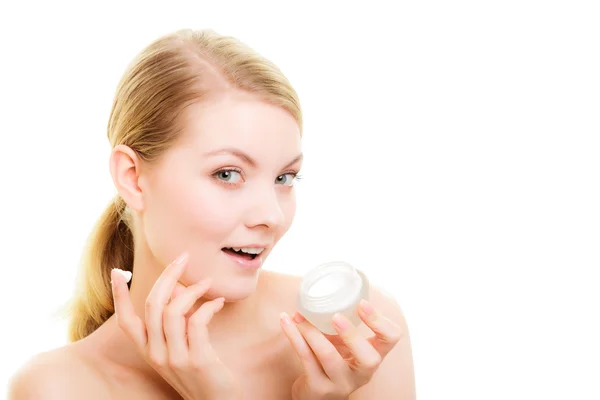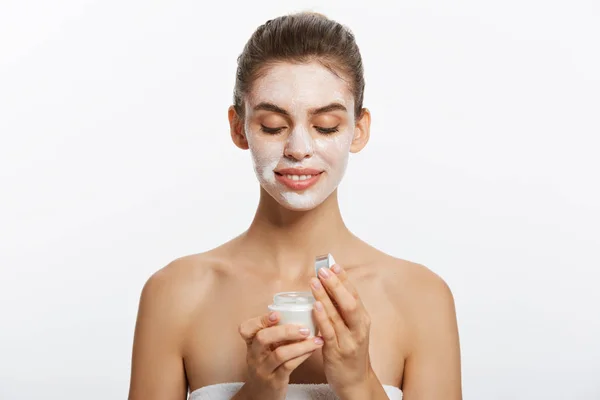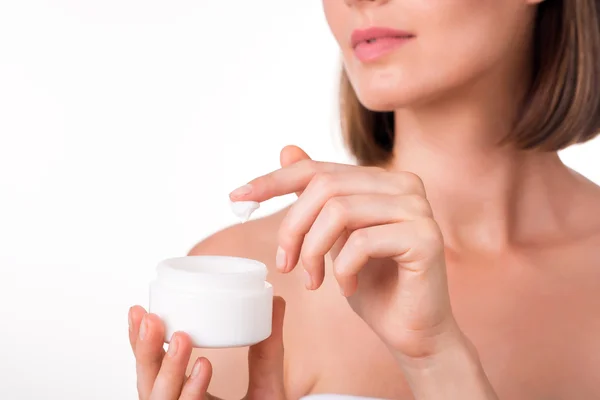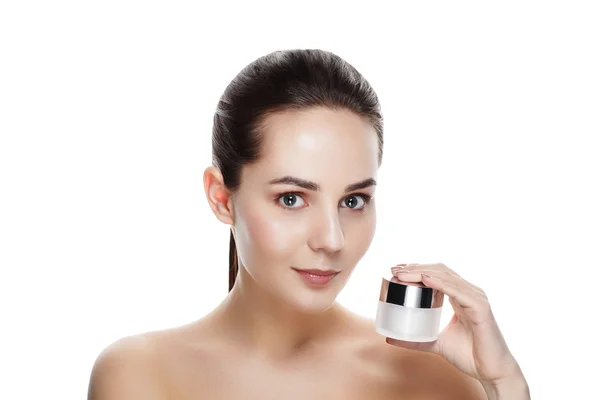What is peptides in skincare, and how do they contribute to healthier, more youthful skin?
Peptides are the secret powerhouses behind some of the most advanced skincare products available today. These tiny but mighty molecules, made up of short chains of amino acids, play a crucial role in maintaining skin’s firmness, elasticity, and youthful glow.
Often hailed as the building blocks of proteins like collagen and elastin, peptides work below the surface, signaling your skin to produce more of these essential proteins, helping to smooth wrinkles, enhance hydration, and even repair damage.
As a result, incorporating peptides into your skincare routine can be a game-changer for achieving a vibrant, resilient complexion.

What Is Peptides In Skincare
Peptides in skincare are short chains of amino acids that play a crucial role in maintaining skin health by signaling skin cells to perform specific functions, like boosting collagen production. They are essential for anti-aging routines, helping to reduce wrinkles, improve skin elasticity, and enhance overall skin texture.
Commonly found in serums, creams, and moisturizers, peptides can help rejuvenate the skin, making it look younger and more vibrant. These tiny molecules are often touted as a must-have for those seeking firmer, smoother, and more youthful-looking skin.
How Peptides Work in Skincare
Peptides work by penetrating the top layer of the skin, sending signals to cells to produce more collagen and elastin, which are proteins responsible for skin firmness and elasticity. By doing so, they help to reduce the appearance of fine lines and wrinkles, giving the skin a plumper, more youthful appearance.
Unlike other skincare ingredients, peptides are gentle and can be used by all skin types, including sensitive skin. They work synergistically with other ingredients like hyaluronic acid, niacinamide, and retinol to amplify their benefits, making them a popular choice in anti-aging skincare routines.
Types of Peptides in Skincare
There are various types of peptides used in skincare, each offering unique benefits. Signal peptides, for example, stimulate the production of collagen, elastin, and other structural proteins. Carrier peptides, on the other hand, deliver trace elements like copper to the skin, which aids in wound healing and skin repair.
Enzyme-inhibiting peptides work by slowing down the breakdown of collagen, thereby preserving the skin’s youthful appearance for longer. When choosing peptide-rich products, it’s essential to look for formulations that combine these types to target multiple skin concerns simultaneously.
Benefits of Peptides in Skincare
The benefits of peptides in skincare are vast and multifaceted. They not only promote collagen production but also help to repair the skin barrier, retain moisture, and enhance skin tone and texture. Regular use of peptide-infused products can lead to firmer, smoother, and more hydrated skin.
Peptides are also known to reduce inflammation and improve skin elasticity, making them an excellent choice for those looking to combat signs of aging and improve the overall health of their skin. Their versatility makes them suitable for all skin types and concerns, from dryness and sensitivity to wrinkles and loss of firmness.
Incorporating Peptides into Your Skincare Routine
Incorporating peptides into your skincare routine is simple and effective. Start by cleansing your skin and applying a peptide serum, followed by a moisturizer to lock in hydration. For best results, use peptide-based products both in the morning and at night.
Pairing peptides with other active ingredients like hyaluronic acid, vitamin C, or retinol can enhance their efficacy, leading to quicker, more noticeable results. Consistency is key, as regular use will ensure that your skin reaps the maximum benefits of peptides, resulting in a more youthful, radiant complexion over time.
Understanding Peptides
Biological Function of Peptides
Peptides play a critical role in the human body, acting as the building blocks for various biological processes. These short chains of amino acids are essential for cellular communication, immune response, and tissue repair.
One of the most significant connections between peptides and proteins is that peptides are the precursors to proteins. When peptides link together in long chains, they form proteins, which are crucial for maintaining bodily functions and structure.
Different Types of Peptides
Signal Peptides
Signal peptides are vital for skin health as they communicate with skin cells to enhance collagen production. By boosting collagen, these peptides help maintain skin firmness and reduce the appearance of wrinkles, making them popular in anti-aging skincare.
Carrier Peptides
Carrier peptides are essential for delivering trace elements like copper and magnesium to the skin. These elements are necessary for wound healing, enzymatic functions, and overall skin vitality. Carrier peptides improve skin texture and tone by ensuring these elements reach the cells where they are needed most.
Enzyme-Inhibitor Peptides
Enzyme-inhibitor peptides work by preventing the breakdown of collagen and elastin, two proteins crucial for skin elasticity and firmness. By inhibiting the enzymes responsible for degrading these proteins, these peptides help maintain youthful, resilient skin.
Neurotransmitter-Inhibitor Peptides
Neurotransmitter-inhibitor peptides have a significant impact on muscle contraction and wrinkle formation. By blocking the signals that cause muscles to contract, these peptides can reduce the depth of expression lines and wrinkles, offering a non-invasive alternative to treatments like Botox.
Peptides vs. Proteins
Peptides and proteins differ primarily in their structure and function. Peptides are shorter chains of amino acids, typically consisting of 2 to 50 amino acids. In contrast, proteins are longer, more complex chains that fold into specific three-dimensional structures.
While peptides can act as signaling molecules or building blocks, proteins perform a wider range of functions, including enzymatic activity, structural support, and transportation of molecules. Understanding this difference is key to appreciating how peptides contribute to overall health and skin rejuvenation.

Benefits of Peptides in Skincare
Collagen Production and Skin Firmness
Peptides are essential in skincare for stimulating collagen production. Collagen is a key protein that keeps the skin firm, smooth, and elastic. By boosting collagen levels, peptides help maintain the skin’s elasticity and firmness, reducing sagging and wrinkles over time. This process enhances the skin’s structure, giving it a more youthful and resilient appearance.
Anti-Aging Properties
Peptides are powerful anti-aging ingredients that target fine lines and wrinkles. They work by promoting the skin’s natural repair processes, leading to a reduction in visible signs of aging. Peptides also prevent premature aging by enhancing the skin’s defense mechanisms, keeping it youthful and vibrant for longer.
Skin Barrier Repair
Peptides play a crucial role in repairing and strengthening the skin’s natural barrier. This barrier is vital for protecting the skin against environmental damage, pollutants, and irritants. By reinforcing this protective layer, peptides help maintain the skin’s integrity and prevent moisture loss, ensuring it stays healthy and hydrated.
Moisture Retention
Peptides improve skin hydration by enhancing its ability to retain moisture. When combined with other hydrating ingredients like hyaluronic acid, peptides work synergistically to keep the skin plump and well-moisturized. This increased hydration is essential for maintaining a smooth, soft, and glowing complexion.
Soothing and Anti-Inflammatory Effects
Peptides also have soothing and anti-inflammatory properties, making them ideal for sensitive or irritated skin. They help calm redness and reduce irritation, promoting a more even and comfortable skin tone. This calming effect is especially beneficial for those with sensitive skin or conditions like rosacea.
Peptides in Skincare Products
Common Skincare Products Containing Peptides
Peptides are potent ingredients in many skincare products. Serums, moisturizers, eye creams, and face masks often feature peptides due to their skin-repairing properties. These products target fine lines, wrinkles, and sagging skin, making them a popular choice for anti-aging routines.
Popular Peptide Ingredients
Matrixyl, Argireline, copper peptides, and Palmitoyl pentapeptide are some of the most effective peptide ingredients in skincare. Matrixyl promotes collagen production, reducing the appearance of wrinkles.
Argireline, often dubbed as “Botox in a bottle,” helps in relaxing facial muscles to prevent wrinkle formation. Copper peptides are known for their healing properties, while Palmitoyl pentapeptide helps improve skin texture.
How to Choose Peptide Skincare Products
When selecting peptide-based skincare, consider your skin type, the concentration of peptides, and the product formulation. It’s crucial to combine peptides with other active ingredients like hyaluronic acid or vitamin C for enhanced results. Look for products that balance moisture and anti-aging benefits.
Application Tips
Apply peptide-based products after cleansing and before heavier creams. For optimal results, use peptide serums in the morning and evening. Layer peptides with other skincare products, ensuring they are applied before oils or thicker creams to maximize absorption.

Scientific Research and Efficacy
Overview of Clinical Studies
Summarization of Research Supporting the Efficacy of Peptides
Peptides in skincare have garnered significant attention due to their ability to promote collagen production and skin repair. Numerous clinical studies support the efficacy of peptides in reducing wrinkles, improving skin texture, and enhancing elasticity.
These studies often highlight peptides’ role in boosting skin hydration and fortifying the skin barrier. Researchers frequently emphasize the potential of peptides to target signs of aging, making them a popular choice in anti-aging products.
Discussion on the Limitations of Peptide Research
While peptides show promise, there are limitations to the current research. Many studies have small sample sizes, which can affect the generalizability of results. Additionally, the effectiveness of peptides can vary depending on their formulation, concentration, and the skin type of the user.
Some research also points out that long-term effects of peptides in skincare are still not fully understood, and more extensive studies are needed to confirm their benefits.
Dermatologists’ Perspective
Expert Opinions on the Use of Peptides in Skincare
Dermatologists often recommend peptides for their anti-aging benefits, citing their ability to stimulate collagen production and repair damaged skin. Experts compare peptides favorably to other skincare ingredients like retinol and vitamin C, especially for individuals with sensitive skin.
Unlike retinol, peptides are generally well-tolerated and less likely to cause irritation. Dermatologists acknowledge that while peptides are not as potent as retinol or vitamin C, they can be a gentler alternative for maintaining youthful skin.
Comparisons with Other Anti-Aging Ingredients Like Retinol and Vitamin C
Peptides, retinol, and vitamin C are among the top anti-aging ingredients in skincare. Retinol is known for its powerful effects in reducing fine lines and promoting cell turnover, but it can be harsh on the skin. Vitamin C is a potent antioxidant that brightens the skin and reduces pigmentation. In comparison, peptides work by signaling skin cells to produce more collagen, offering a more gradual approach to anti-aging. Dermatologists often suggest incorporating all three ingredients into a skincare routine for comprehensive anti-aging benefits.
Common Myths and Misconceptions
Clarification of Myths Surrounding Peptides
There are several myths surrounding peptides, one of the most common being that they are a one-stop solution for all aging concerns. While peptides are effective, they are not miracle workers and should be part of a broader skincare regimen.
Another misconception is that all peptides are the same, but in reality, different peptides serve different functions, from moisturizing to firming the skin.
Differentiating Between Marketing Hype and Scientific Facts
Marketing often exaggerates the benefits of peptides, leading to confusion among consumers. It’s essential to distinguish between marketing claims and scientific facts. For instance, while peptides are beneficial, their effectiveness depends on their stability in a product and the delivery method.
Not all peptide-containing products are created equal, and some may not penetrate the skin deeply enough to be effective. Consumers should look for products backed by clinical research and recommended by dermatologists for the best results.


